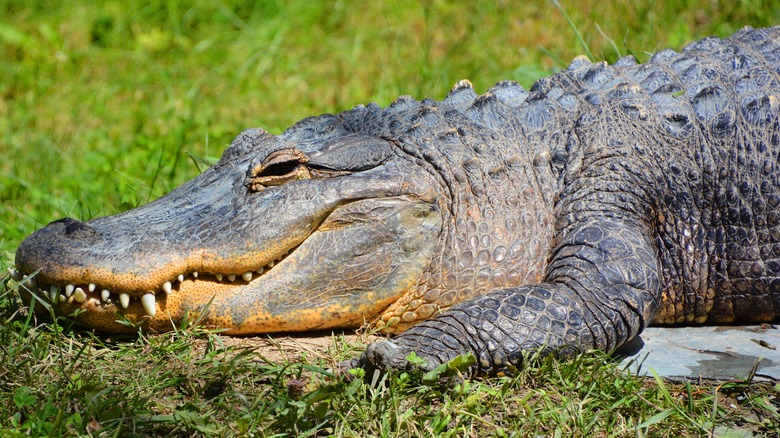The Reason Fish Isn't Considered Meat During Lent
Every February — without fail — numerous restaurants and fast food chains around the globe start advertising fish specials and Friday night fish fry events suddenly become commonplace. The reason for this sudden enthusiasm for seafood is the start of Lent, the 40-day period leading up to the celebration of Easter on the Christian calendar. Many Christians — primarily Catholics — are instructed by church doctrine to abstain from meat on Fridays during this season as a recognition of the crucifixion, which the Bible says took place on a Friday. You may ask yourself though, why, if Christians are not supposed to eat meat, is it acceptable to eat fish? Vegetarians and vegans consider fish meat, so why doesn't the Church? The answer has been mired in conspiracy theories for centuries, though it likely amounts to a simple matter of very old definitions of "meat."
One conspiracy theory has long circulated that the reason for the "fish isn't meat" rule is a millennium-old pact. Many people believe that when Pope Nicholas I decreed that Catholics should abstain from meat on Fridays in the 9th Century, he excluded fish as part of a deal with the local fishing industry, as a way to support sales. This however, has never been proven as no records of any such deal exist in Vatican archives.
What counts as fish?
So if it was not because of a pact, why isn't fish meat? The likely reason is that fish are cold-blooded, which back in the 9th century is how meat was classified. If it didn't traditionally bleed, it was not meat and was fair game. This effectively restricted faithful Christians from eating birds and mammals, though flexible definitions muddied this rule over time.
Technically, the cold-blooded rule would mean that Catholics looking for a Friday protein boost would be able to eat reptiles, including alligators and iguanas, if they wanted, though in medieval Europe, most people were not keen on eating snakes and this exception was largely overlooked. During the 17th and 18th centuries, Catholics around the world began to liberally interpret "fish" as any aquatic-based creature, despite blood temperature, and created local meat exceptions that remain in place today. Some notable exceptions include aquatic rodents like beavers in Quebec, capybaras in Venezuela, and muskrats in Michigan, and one bird — the puffin — in parts of France.
Still, despite the distinction, much of the world still sees the only exception as "fish."

